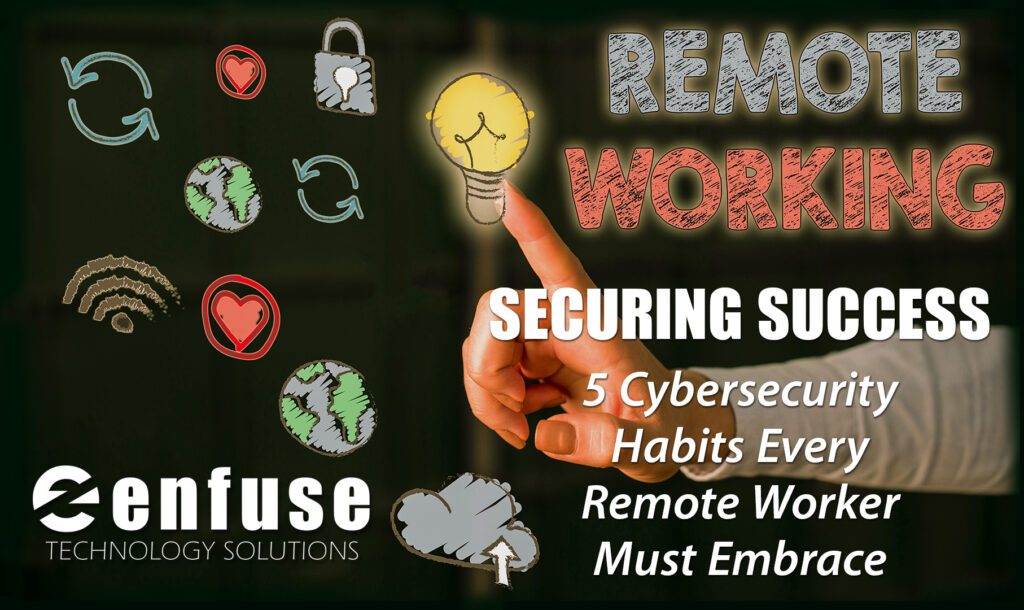
The rapid rise of remote work has ushered in a new era of flexibility and convenience for both businesses and their employees. However, it has also introduced a host of cybersecurity challenges that require immediate attention. Protecting sensitive data is always paramount, but when your workforce operates from home, coffee shops, or any remote location, ensuring that they make wise choices to safeguard your data becomes even more critical. Here are five fundamental cybersecurity habits every remote worker should embrace.
- Choose Your Work Location Wisely
While working from a favorite coffee shop or a scenic park might seem idyllic, it can expose remote workers to additional cybersecurity risks. Over-the-shoulder attacks, in which cybercriminals covertly monitor screens in public spaces, pose a genuine threat that could lead to data breaches. Remote employees should prioritize working in quieter, more private settings to minimize this risk.
- Beware of Public Wi-Fi
Public Wi-Fi networks are notorious breeding grounds for cyber threats. If remote workers must operate from a public place, it’s crucial to avoid connecting to public Wi-Fi networks. These networks are often less secure and can make individuals vulnerable to hacking. Instead, using a personal phone’s hotspot provides a safer and more secure internet connection. Additionally, the use of a Virtual Private Network (VPN) can further encrypt data, enhancing security.
- Invest in Security Software
Security software serves as a robust defense against malware and cyberattacks. It is a valuable addition to both company-provided and personal devices. Beyond safeguarding business data, it also offers protection for personal information, such as credit card details and sensitive documents.
- Keep Everything Updated
Regularly updating all devices is not merely about accessing new features; it is also about maintaining security. Software updates often include crucial security patches that address vulnerabilities. Remember that it’s not only laptops and smartphones that require updates but also routers and any Internet of Things (IoT) devices connected to your network.
- Manage Household Risks
Even within the confines of their homes, remote workers handle sensitive business information. If employees share their living space with housemates, children, or other family members, consider implementing parental controls to prevent accidental data breaches.
By adopting these prudent cybersecurity habits and implementing essential security measures, remote workers can fully enjoy the benefits of remote work while ensuring the safety and security of sensitive data.
If you’re looking for expert assistance in securing your remote work setups, don’t hesitate to reach out to Enfuse Technology Solutions. Their specialized cybersecurity solutions can help fortify your remote workforce against evolving threats, ensuring a safer and more productive work environment.
